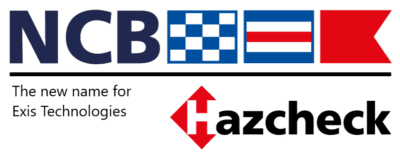Dangerous goods: advancing risk management, TT Talk. August 2021
While the series of catastrophic containership fires experienced during 2019 has, happily, not been repeated this year, there is no room for complacency. The incidence of lesser fires and emergencies persists.
The May 2021 fire and subsequent sinking of ‘Xpress Pearl’ provides adequate reminder of the complexities involved in the transport of dangerous goods (DG). Action taken at the end of July in strikingly similar circumstances averted ‘Seaspan Lahore’ becoming another casualty. Earlier in July, an explosion and fire occurred on board ‘Ocean Trader’ whilst berthed at Jebel Ali. All these ships were of modest or even small TEU capacities, but the incidents supremely display the TT-coined term of ‘adjacency risk’ – being the hazard that may be presented by even one cargo or package, within one container whilst amongst a stack of units, whether on board a ship or in a terminal yard.
Screening controls
Container carriers have continued strenuous efforts in screening cargo bookings, benefitting from the pioneering work by Hapag-Lloyd with its Cargo Patrol tool. While developments across the industry have proliferated, including the launch last year of both ZimGuard and Hazcheck Detect, it is likely that the most exciting advances are just around the corner, particularly embracing machine learning methodologies.
Many existing screening tools are built around keyword searches, which are effective for known or emerging synonyms; machine learning can not only improve the depth of historical understanding, but also plug in the plethora of public source trade data and private commercial data. It is recognised that mistakes will be made in the complex arena of DG compliance, but it is particularly good news to see strengthening defences against those shippers relying on half-truths and, more so, those who are full-on criminal fraudsters.
Inspection status
Of course, the value of effective screening is really only as good as the follow-through. This might ideally include enforcement within the state where the criminal shipper is based, although such hopes have hitherto been largely forlorn. Twinning screening alerts with targeted inspections has, however, proven effective and has the potential to lead to an improvement cycle whereby safety practices are embraced and adopted to the benefit of all involved. Remember, though, that the hardened wrong-doer will always seek the weakest link and the freight will still move – with the constant risk from sharing arrangements that it will fall back on the carrier who first called it out.
From a regulatory perspective, states are urged by the International Maritime Organization (IMO) to carry out inspections in accordance with the guidelines set out in MSC.1/Circ.1442 (“Inspection programmes for cargo transport units carrying dangerous goods”). While this IMO Circular remains in a protracted amendment cycle (due to COVID disruptions), reporting over the last two calendar years has regrettably decreased, both in terms of the number of states apparently engaged and also the absolute number of units inspected. Despite any pandemic mitigating factors applying in 2020, this situation underlines IMO’s own admission that it has insufficient data on which to base decisions – effectively rudderless for the regulation of containerised cargo.
Most of those states reporting have been consistent over recent years (for which they can be commended), but the lack of broader engagement is lamentable. Incidents continue to occur with alarming frequency and self-evidently impact on lives, assets and the environment. Even taking into account that the sample size is currently less than 0.025% of laden container movements, the reported findings evidence persistent and serious levels of concern relating specifically to DG (such as placarding) and to general cargo integrity (such as packing and securing).
Unless and until there is a commitment globally to inspect shipments, in a statistically viable manner, in advance of an incident occurring, the IMO, member States and the industry will continue to be denied a critical insight that could enable action to be taken to protect crews, shipping and the environment.
Condition monitoring
Apart from screening, there are numerous innovations in varying degrees of development and deployment that could assist the industry in preventing avoidable incidents, some being targeted at early detection or response on board ship, others monitoring conditions throughout the supply chain or seeking to enhance cargo protection where required. While inherently involved in ship-board innovations, TT is especially interested in land-side operations, resulting in its promotion of the CTU Code and identifying common issues giving rise to cargo damage and increased hazards.
Regulatory competence
Transport of Dangerous Goods ultimately falls within the remit of a detailed regulatory environment, each mode derived from the overarching UN Model Regulations. While the specific regulations for each mode require adherence, particular focus is required in the intermodal supply chain on that applying for carriage by sea – the International Maritime Dangerous Goods (IMDG) Code. The TT/UKP&I ‘Book it right and pack it tight’ guide provides an overview of the key practical duties under the IMDG Code for all stakeholders. Due to delays encountered in finalising Amendment 40-20 during the pandemic, the IMO determined that Amendment 39-18 may continue to be used until the end of May 2022, and the latest Amendment will be enforced from 1 June 2022.
A key control aspect of the IMDG Code environment is that shore-side training is mandatory. TT continues to urge all entities to seek assurance on compliance with this from counterparties as part of effective due diligence. While recognising that many organisations provide appropriate DG training, TT continues to sponsor and promote that Exis Technologies’ IMDG Code e-learning, which has been fully updated to Amendment 40-20 and meets the mandatory training requirements in Chapter 1.3 of the IMDG Code.
Peregrine Storrs-Fox
Risk Management Director, TT Club







